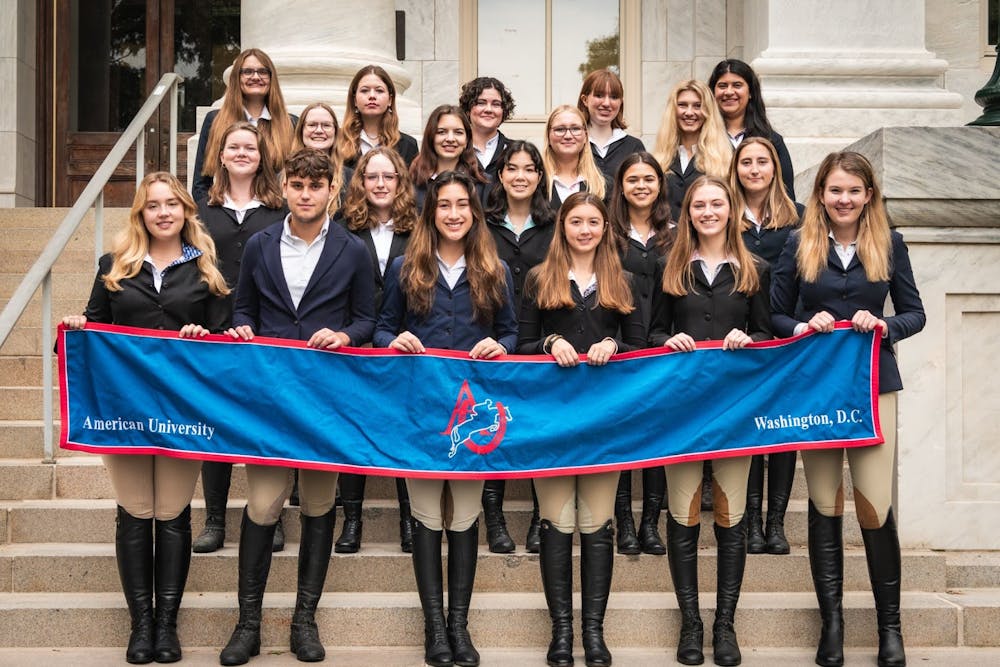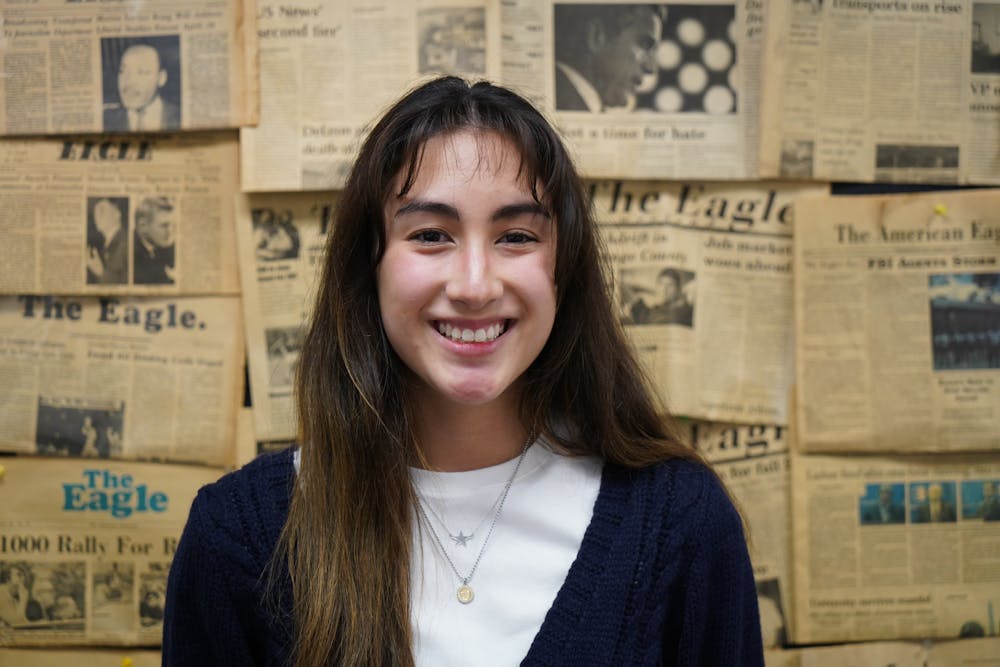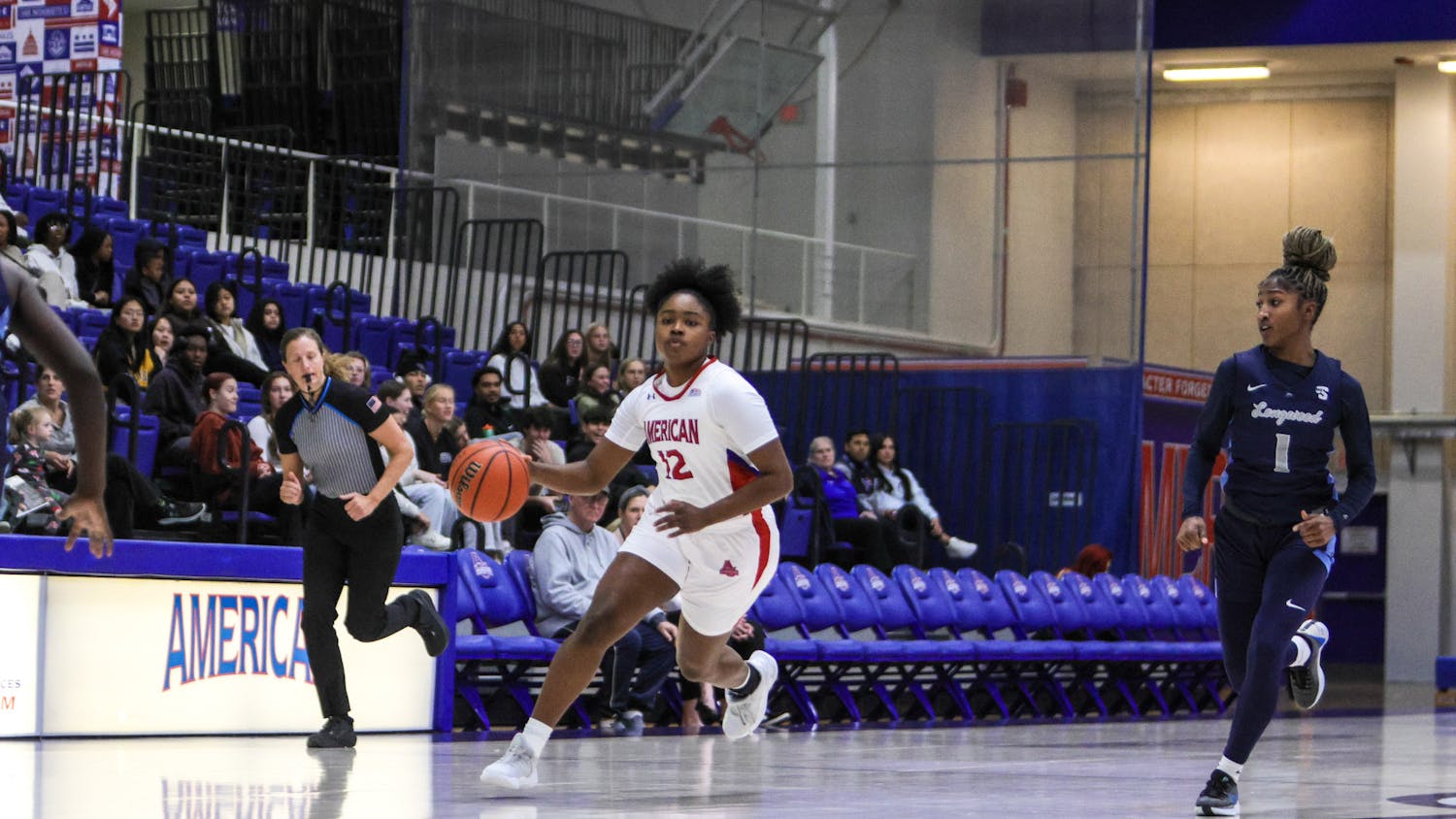When I came to American University, I knew one of the first things I would do as a new student would be to join the school’s club equestrian team.
During my college search, I made sure every school I considered had an established club team; riding in college was a difficult transition that I knew I wanted to keep close to my side; leaving my own horse at home to come to a new city for school was terrifying. I spent some of the most impactful years of my life riding horses, so they are, in a sense, forged within my identity. And yes, I was called a horse girl in middle school.
The equestrian team rides once a week at a barn in Burtonsville, Maryland, really in the middle of nowhere. Usually, lessons take around five hours of our day, so we get to know our lessonmates particularly well.
During my first semester, I had lessons with two other freshmen and a sophomore. It was very relieving to talk about the trials and tribulations of college with people I might not have met before riding with them, but who are bonded by one common passion. Once a week, we leave campus to do something we all love; it is an amazing escape from the hustle and bustle of the city.
With this, each lesson group has its own fun stories of our lessons, our trainer or interactions with horses. When the team comes together, it is a fun time sharing those experiences
My freshman year on the equestrian team helped me find a sense of community on campus, and I decided to stay and even seek a leadership role.

The summer between my freshman and sophomore year, my horse back home, Wilford, passed away. It was unexpected, and despite my efforts to stay around horses, I began to despise riding and horses in general. I struggled to see where my grief stood; did it stand with a best friend? Or a pet? He was neither. But he was always there to lean on, and I truly feel he understood me. These feelings left me wondering where to classify my grief and how I could explain this to someone who has never understood the unique relationship between horse and rider. My feelings furthered my loneliness into the fall semester, isolating me with failing mental health.
The equestrian team and our weekly lessons served as my outlet to console my grief. Meeting new members and seeing old teammates helped my grief settle because I again found a community that understood the complex relationship between horses and humans that I lacked at home. I began competing more in region shows. Much of my anxiety about competing began to dissipate, and slowly but surely, my grief has lessened to the point where I now thoroughly enjoy the sport I’ve grown up with again.
What an AU club sport has done for me, I hope, has done the same for many other people. While our sport may not be collegiate, it provides a low-stress environment for our genuine love of the sport to thrive and even heal. Sports burnout is real, and it is wonderful to know there is a community that I know understands the pain and complex relationships sports entail.
On the team, I can ride different horses and equate the strengths and weaknesses in my riding — I can challenge and push myself enough to still feel confident. And while the club sports atmosphere offers a plethora of options, I am sure all of us can agree that club sports draws students of different backgrounds and skill levels. Seeing what our sport means to people outside of our hometown gives us the chance to reflect on our journeys as athletes.
Despite the challenges, being a club sport athlete has allowed me to find love within equestrianism again. It has been one of the best decisions I have made in college. So I encourage those who are on the fence or who miss the sport they played in high school to, quite literally, “join the club.”
Mari Santos is a sophomore in the School of Public Affairs and a columnist for The Eagle.
This piece was edited by Alana Parker, Jelinda Montes and Abigail Pritchard. Copy editing done by Luna Jinks, Isabelle Kravis and Julia Patton.





